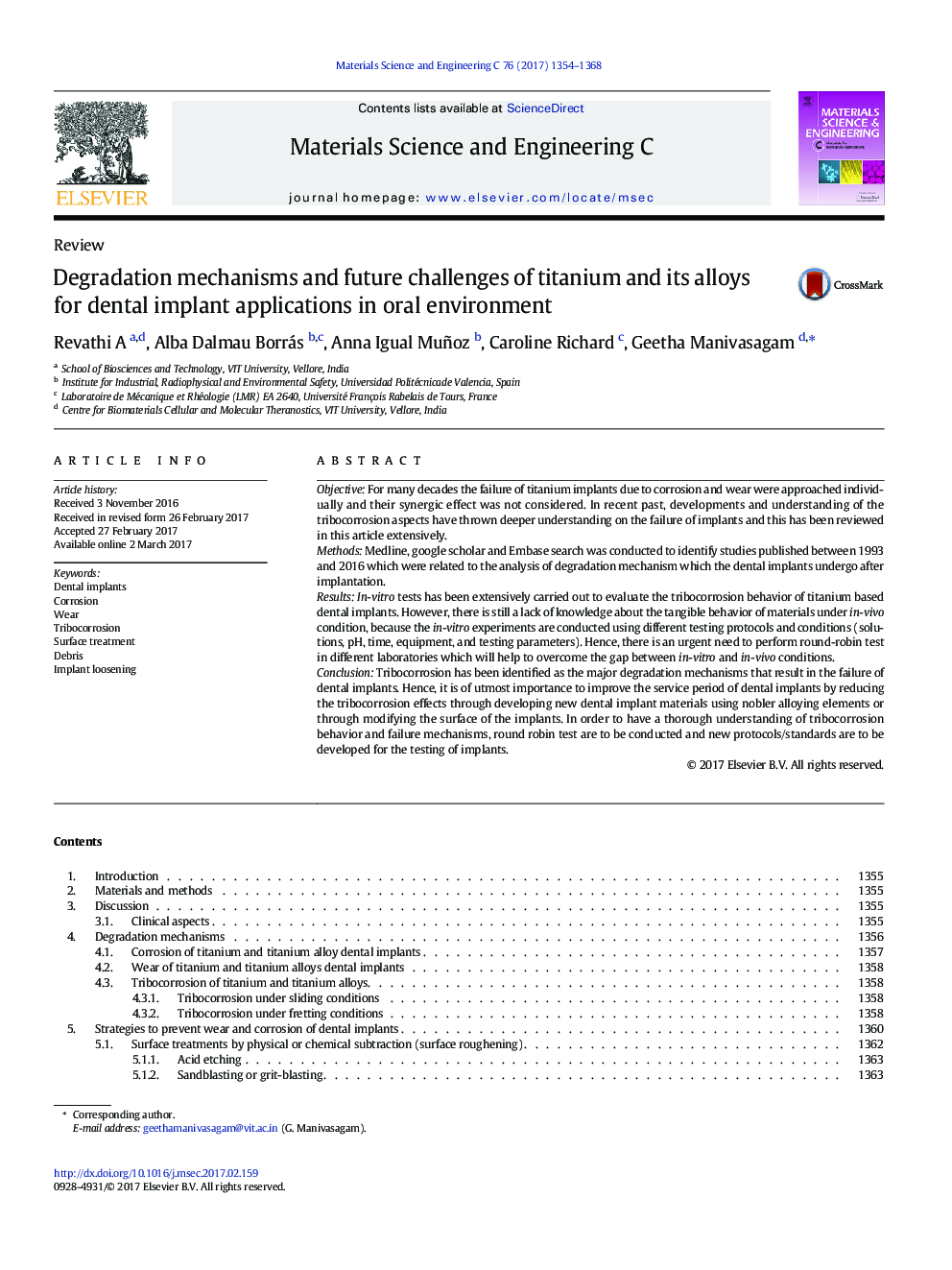| کد مقاله | کد نشریه | سال انتشار | مقاله انگلیسی | نسخه تمام متن |
|---|---|---|---|---|
| 5435079 | 1509145 | 2017 | 15 صفحه PDF | دانلود رایگان |
- Significance of titanium dental implants and the major problems influencing the failure of dental implants has been emphasised.
- Conjoint action of corrosion and wear behavior of Ti-based implant material varies with the condition in which the test is performed.
- Toxic effects associated with the release of wear debris in the peri-implant region and the possible strategies that could be employed to improve both the bulk and the surface-related properties are proposed.
- Surface-modification is essential to improve the tribocorrosion properties of titanium alloys under fretting and sliding conditions.
ObjectiveFor many decades the failure of titanium implants due to corrosion and wear were approached individually and their synergic effect was not considered. In recent past, developments and understanding of the tribocorrosion aspects have thrown deeper understanding on the failure of implants and this has been reviewed in this article extensively.MethodsMedline, google scholar and Embase search was conducted to identify studies published between 1993 and 2016 which were related to the analysis of degradation mechanism which the dental implants undergo after implantation.ResultsIn-vitro tests has been extensively carried out to evaluate the tribocorrosion behavior of titanium based dental implants. However, there is still a lack of knowledge about the tangible behavior of materials under in-vivo condition, because the in-vitro experiments are conducted using different testing protocols and conditions (solutions, pH, time, equipment, and testing parameters). Hence, there is an urgent need to perform round-robin test in different laboratories which will help to overcome the gap between in-vitro and in-vivo conditions.ConclusionTribocorrosion has been identified as the major degradation mechanisms that result in the failure of dental implants. Hence, it is of utmost importance to improve the service period of dental implants by reducing the tribocorrosion effects through developing new dental implant materials using nobler alloying elements or through modifying the surface of the implants. In order to have a thorough understanding of tribocorrosion behavior and failure mechanisms, round robin test are to be conducted and new protocols/standards are to be developed for the testing of implants.
140
Journal: Materials Science and Engineering: C - Volume 76, 1 July 2017, Pages 1354-1368
